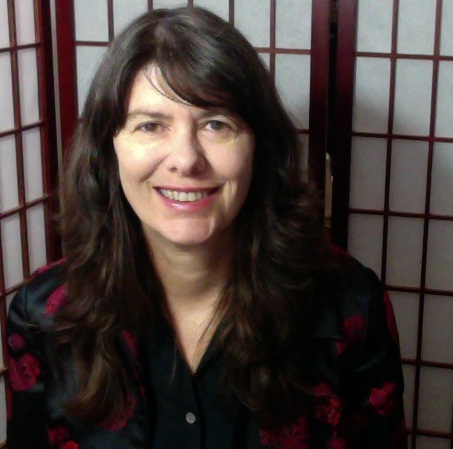Karen Van Hook, Ph.D.
Speaker Coaching for Flash Memory Summit


Are you speaking at the 2018 Flash Memory Summit?
Do you want to make sure your message comes across?
Find out how voice and accent coaching can help you:
- Speak more clearly with less effort
- Use your voice to engage your audience
- Give a better, more effective talk
My specialty is helping people who speak English as a foreign language. I’ve worked with speakers of Chinese, Japanese, French, Korean, Russian, Italian, and many other languages. I help native English speakers, too.
Set up a free consultation at no obligation: Go to my calendar and pick a time. Or email me at karen@chosen-voice.com.
Some questions you may have:
What is voice and accent coaching?
It’s specialized coaching to help a speaker achieve their own goals for their speech. Native speakers often want to speak with less tension and with a more resonant voice. Most people who speak English as a foreign language want to sound more clear, smooth and fluent.
If you’re giving a talk at the Flash Memory Summit, we’ll focus specifically on changes that will help you give a better, more effective talk.
Suppose I speak English as a foreign language. How is working with you different from just having someone correct my pronunciation, like in an ESL class?
This is very different from just “fixing your mistakes.” Instead of just showing you how to say a word, I’ll help you make some basic changes so it’s easier to say that word and many more. It’s more like working with a golf coach or a personal trainer.
How exactly will you help me?
I’ll analyze the way you speak: things like how you move your mouth and tongue and where you have tension in your throat. I’ll identify changes that will help you to feel and sound smoother and more comfortable in English.
For example, maybe the reason a word seems very hard to pronounce has to do with the way you move your jaw. I’ll guide you to learn a new movement pattern that works better for English.
Can you really make a difference in just a few lessons?
Typically, yes. A lot of my work is preparing clients to give talks at international conferences. I look for things that we can change that will make an immediate difference.
Clients often say that the new habits I’m teaching them immediately feel easier than what they were doing before. Making the changes permanent requires practice, or else old habits will return. But if you practice the techniques I give you, I’m confident that you will sound smoother and more fluent.
How do we get started?
Sign up for a free consultation and evaluation by emailing karen@chosen-voice.com or going to this link.
I want to hear how you speak and what your goals are. Once I identify specific ways that I can help you, we can talk about a schedule for meetings.
A few more general questions:
You coach native speakers too? Why would they need help?
For one thing, I work with British and Australian actors who need to master the American accent. But even American speakers can often use some help. The basic principles are the same as for speakers of a foreign language.
Native speakers often have speaking habits that cause tension. They don’t sound as smooth and confident as they could. Sometimes they even have pain in their face or throat. These things can usually be resolved by changing speaking habits.
Whether the individual is a native speaker of American English or not, my job is to identify the habits that are holding them back and show them how they can change.
Why is it so difficult to pronounce a foreign language?
The habits we’ve learned in our first language tell us the “right” and “natural” way to do things. But some of those habits don’t work well in another language.
If you feel “I’m trying as hard as I can, and I just can’t get it,” that means that there’s a conflict between your familiar habits and the language you’re trying to speak. What you need is not to try harder but to get some insight into which habits are causing the trouble.
For instance, I struggled with pronouncing certain words in Russian until I realized that I had an American English habit of raising my tongue in a certain way—exactly the opposite of the way it needed to move for Russian. The harder I tried, the more I did this automatic tongue movement. So no amount of trying harder was going to fix it! What I needed to do (and did) was learn a different movement.
Isn’t it difficult to change an accent?
Some parts are difficult and others are easy. When I’m helping someone prepare for a talk that’s coming up soon, I help them make changes that are do-able and that will make an immediate improvement. If someone wants more extensive accent change, some aspects may require more in-depth work and a lot more practice.
Keep in mind that some of the difficulty we feel in speaking a foreign language comes from the way that the habits of our first language can give us the wrong idea about how to pronounce a language that works differently. And foreign language classes (such as ESL classes) have often provided incomplete or incorrect explanations.
It’s very common for a speaker of a foreign language to feel “That word is just so difficult—I just can’t get it.” Often, what they think they have to do is very different from what a native speaker would do. When they understand what the natives are actually doing, they usually find that they can do it too.
I can’t count the number of times a client has successfully pronounced an “impossible” word or phrase and then said, “Oh, is that all I have to do? That’s much easier than what I was doing!”
karen@chosen-voice.com
617-284-6640